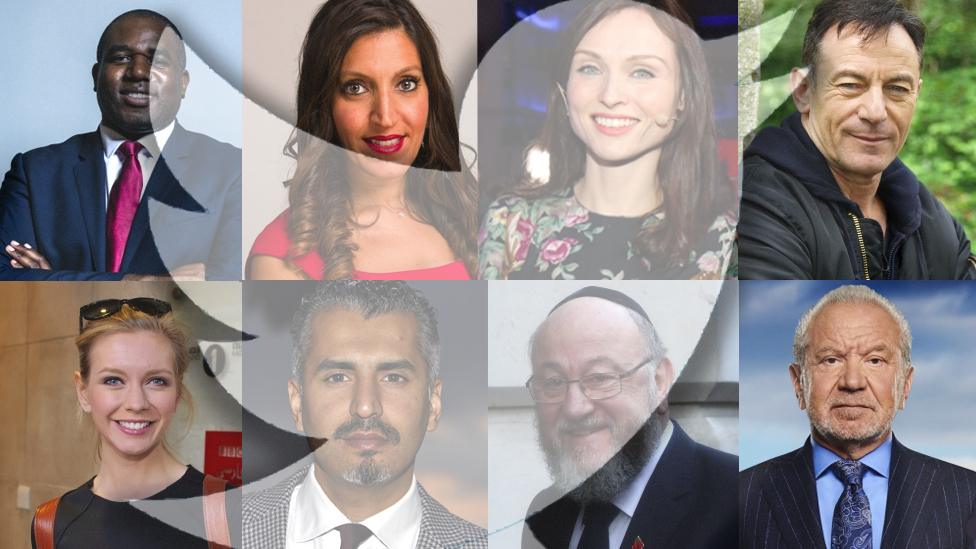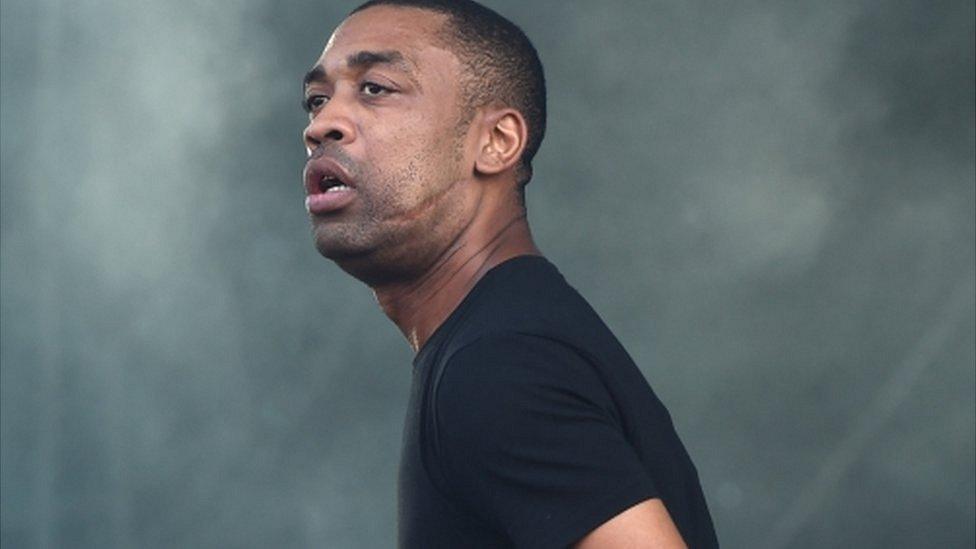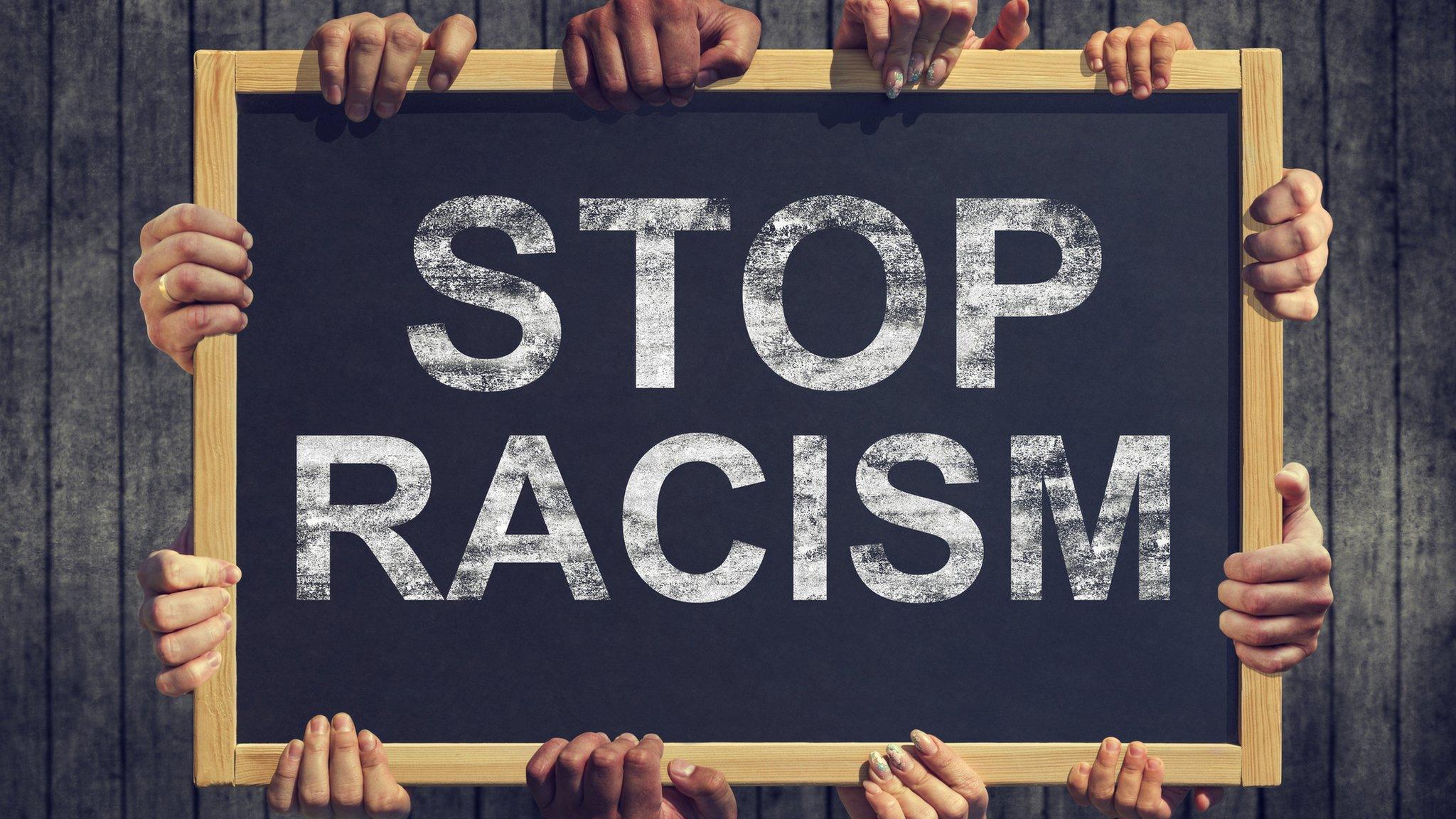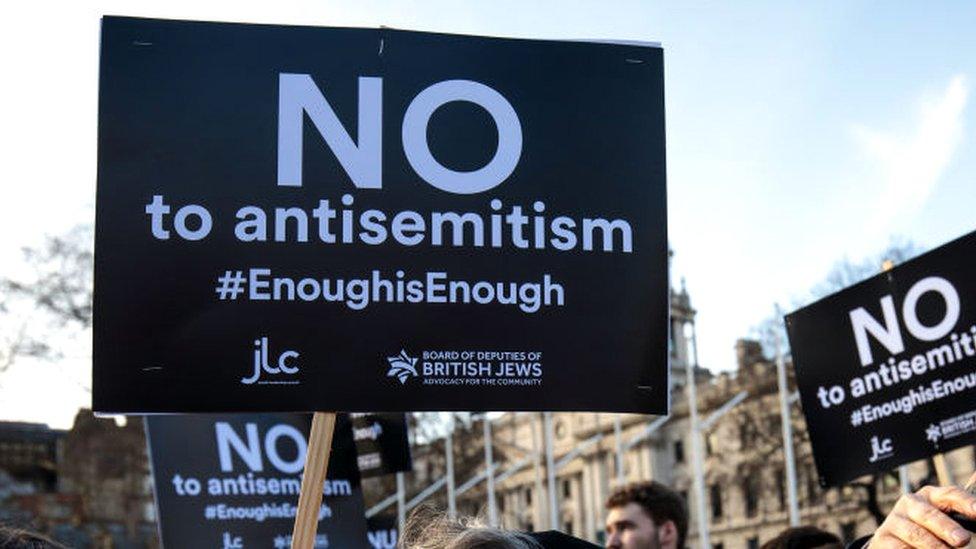Anti-Semitism: Celebrities and MPs stage 48-hour Twitter protest
- Published
- comments

Those taking part in the boycott include MPs David Lammy and Rosena Allin-Khan, singer Sophie Ellis-Bextor, actor Jason Isaacs, broadcasters Rachel Riley and Maajid Nawaz, Chief Rabbi Ephraim Mirvis, and businessman Lord Sugar
Businessman Lord Sugar, TV presenter Rachel Riley and Harry Potter actor Jason Isaacs are all taking part in a 48-hour boycott of Twitter over anti-Semitism.
The boycott - which means to stop using a service in protest - was triggered by the actions of music artist Wiley, who shared several offensive posts on the social media platform.
Some of the tweets were deleted, but Twitter was criticised for taking too much time to act and leaving some tweets up.
The Prime Minister's official spokesperson has said Boris Johnson believes "Twitter needs to do better".
What is anti-Semitism?
Anti-Semitism is actions or language promoting a dislike towards Jewish people.
The result of it can be that a Jewish person or group of people are treated unkindly, unequally or unfairly because of their faith.
If the anti-Semitic incident is particularly serious, it can be a form of hate crime, which is against the law.
Jenny went to meet Jewish children to talk to them about anti-Semitism (February 2015)
Who is Wiley and what did he do?
Wiley, whose real name is Richard Cowie, is a major figure in UK grime music.
During his tweet session on Friday, the 41-year-old artist talked about his beliefs and ideas about Jewish people and other insulting material.

Wiley began posting offensive messages on social media before being temporarily banned by Twitter on Saturday
Many have now been replaced with notices that the tweets are no longer available because they broke Twitter's rules.
Wiley has been temporarily suspended by Twitter but not banned.
He also published a lot of posts to Facebook-owned Instagram, and has also been temporarily suspended from that platform too.
Wiley's management also dropped the artist over the weekend, saying: "There is no place in society for anti-Semitism."
How are people protesting against anti-Semitism?
Dozens of well-known figures are supporting the two-day boycott of Twitter, which began at 9am on Monday in the UK.
Many of those taking part - including Greenpeace UK, the Royal Opera House, the pop group McFly and sports presenter Gary Lineker - accused Twitter of "breaking its own policies" for not having taken a tougher line on anti-Semitism.
However, some people have questioned whether keeping silent is the best way to challenge online hate.
WATCH: Advice if you're upset by the news
Twitter said: "Abuse and harassment has no place on Twitter and we strongly condemn it."
The firm highlighted its rules that ban the promotion of violence against people on the basis of religion, race or ethnicity.
"We enforce our rules judiciously and impartially for all and take action if an account violates our rules," it said.
- Published17 June 2020

- Published19 February 2019

- Published7 February 2019

